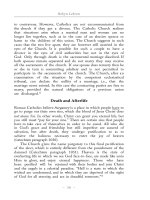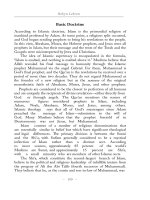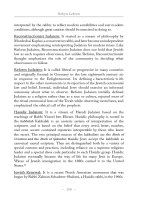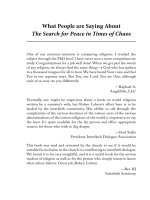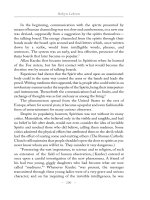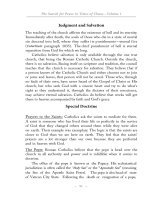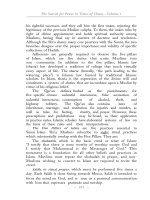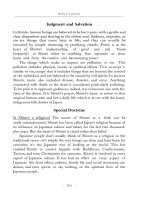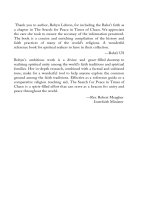20 world religions and faith practices 101
Bạn đang xem bản rút gọn của tài liệu. Xem và tải ngay bản đầy đủ của tài liệu tại đây (79.64 KB, 1 trang )
Robyn Lebron
Basic Doctrine
According to Islamic doctrine, Islam is the primordial religion of
mankind professed by Adam. At some point, a religious split occurred,
and God began sending prophets to bring his revelations to the people.
In this view, Abraham, Moses, the Hebrew prophets, and Jesus were all
prophets in Islam, but their message and the texts of the Torah and the
Gospels were misinterpreted by Jews and Christians.
The idea of Islamic supremacy is encapsulated in the formula,
“Islam is exalted, and nothing is exalted above it.” Muslims believe that
Allāh revealed his final message to humanity through the Islamic
prophet Muhammad via the angel Gabriel. For them, Muhammad is
God’s final prophet, and the Qur’an is the revelations he received over a
period of more than two decades. They do not regard Muhammad as
the founder of a new religion but as the restorer of the original
monotheistic faith of Abraham, Moses, Jesus, and other prophets.
Prophets are considered to be the closest to perfection of all humans
and are uniquely the recipients of divine revelation—either directly from
God or through angels. The Qur’an mentions the names of
numerous
figures considered prophets in Islam, including
Adam, Noah, Abraham, Moses, and Jesus, among others.
Islamic theology says that all of God’s messengers since Adam
preached the
message of Islam—submission to the will of
God. Many Muslims believe that the prophet foretold of in
Deuteronomy was not Jesus, but Muhammad.
Islam consists of a number of religious denominations that
are essentially similar in belief but which have significant theological
and legal differences. The primary division is between the Sunni
and the Shi’a, with Sufism generally considered to be a mystical
inflection of Islam rather than a distinct sect. According
to most sources, approximately 85 percent
of the world’s
Muslims are Sunni, and approximately 15 percent are Shi’a,
with a small minority who are members of other Islamic sects.
The Shi’a, which constitute the second-largest branch of Islam,
believe in the political and religious leadership of infallible imāms from
the progeny of Ali ibn Abi Talib (fourth successor of Muhammad).
They believe that he, as the cousin and son-in-law of Muhammad, was
~ 100 ~
